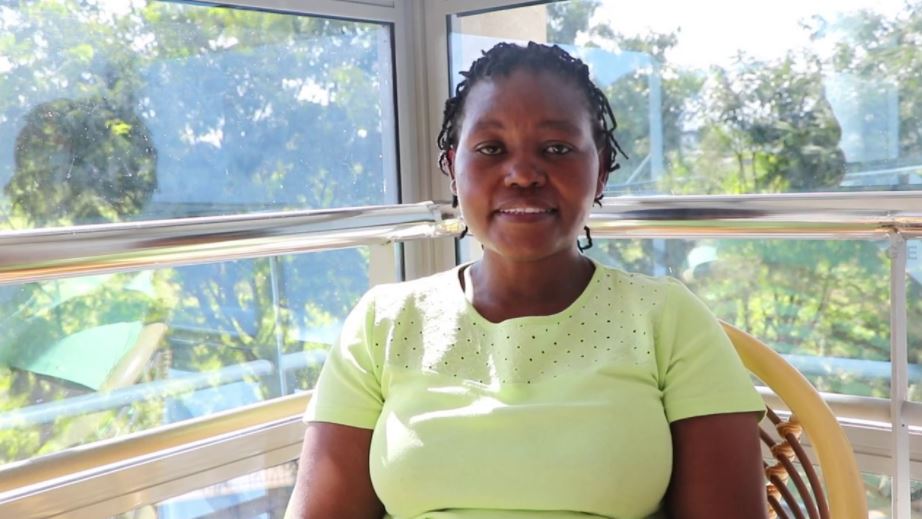
The researcher speaks about her vision for Nairobi, her journey and more.
You recently won the global 2050 Food Systems Vision prize. Your vision for the award is to restore Nairobi to “A Place of Cool Waters” – A food secure, healthy, environmentally friendly urban space, where all people live in harmony and peace in the spirit of “Ubuntu”, what does this mean?
This vision is to restore Nairobi to its original place – a place of cool waters — through a transformative, regenerating and human-centred food system. Nairobi (Enkare Nyirobi) was named as such by its indigenous inhabitants, the Maasai people, meaning “the place of cool waters” referring to cool rivers flowing in/through it.
Nairobi was clean and green and the Maasai people grazed their cattle in it. It has also been referred to as the “Green City in the Sun”.
Nairobi today is a degraded urban space. The green spaces have generally been replaced by a concrete jungle that is already encroaching into neighbouring counties like Kiambu County that feed it. A majority of its residents live in informal settlements characterised by high levels of food insecurity, malnutrition and poor health. This is despite the fact that a lot of food is dumped in dumpsites, where many urban poor scavenge for food, while others sleep hungry.
Capitalism has led to commodification of food so much so that if you do not have money, you do not have food. Further, due to food commodification, food sold in markets in the city, majorly coming from rural areas, is not safe as it is grown through unsafe use of agricultural chemicals to increase yield.
Through various strategies under the Vision, we will promote access to adequate and healthy food so that people feed themselves in dignity. We envision that all this will lead to a food-secure and healthy environment, where people live in harmony and peace, in the spirit of Ubuntu.
What challenges do you go through during your work and how do you solve them?
Ever heard of the saying – “Publish or Perish” associated with academic institutions? Career progression for a researcher depends a lot on their academic productivity. One has to often conceptualise new ideas, raise funds to implement the ideas, publish the new evidence from the research, and engage policy with the evidence. That is the cycle.
How has the journey been?
In my journey towards where I am today as a researcher, I have published tens of research publications. Sometimes you submit a paper to a journal and it gets rejected. You have to revise the paper and resubmit to another journal – that is the life of a researcher – and one needs to know this well, so as not to give up along the journey.
Another challenge is work-life balance. I often have to work more than 100 per cent of time to finish on deliverables, and I have a family to take care of. Balancing all that is often a challenge. I have learnt to deal with this through proper leadership – I have been trained and mentored on leadership — proper planning, prioritisation and delegation. These are key in success.
What gives you the greatest fulfilment and encouragement?
Being able to inform and drive change in people’s lives through my work gives me a lot of fulfilment and encouragement. Through my research work I have informed policy formulation and implementation in Kenya to promote health and wellbeing of Kenyans and Africans in general. These include policies around the baby friendly community initiative, workplace support for breastfeeding and human milk banking.
I am particularly happy about the Zero Hunger Initiative that I have initiated at APHRC, based on the Food Systems Vision. This is aimed at promoting freedom from hunger and the right to adequate food for people in urban areas in Kenya, and eventually the wider Africa, while promoting a healthy environment in urban areas.
Growing and mentoring the next generation also gives me a lot of joy and fulfilment. I have mentored many young people in research, through supervision as colleagues, internships, and supervision of masters and PhD students. I have also mentored young people who work in urban poor settings as change agents in their communities.
What advice can you give to up-and-coming women who are interested to take after you?
Diligence pays! I will tell them what my mum always told me, “Nothing good comes along easily”, meaning that one, and particularly a woman, has to work hard(er) to make it and thrive in their careers and in life generally. I single out women because it is only women who have to carry babies for nine months in their wombs, who breastfeed babies among many other life responsibilities. These (extra) responsibilities are usually not taken care of when it comes to academic requirements, promotions at work, and grant applications among many career responsibilities.
What do you enjoy most about your work? And why?
Freedom to think, freedom to execute work, freedom to influence. The work of a researcher provides a lot of freedom and opportunity. A researcher is often their own boss – they decide what projects they initiate. This is because they write their own proposals and make grant applications for the projects they want to implement, design the projects and execute according to their plans. My workplace is a good work environment and it promotes this freedom.
What is your ideal day like?
Currently, my day is long and full! I am a mother, a wife, a researcher, a leader, and a student. But all fit in the day.
What drives you?
I am passionate about justice! I have a vision for a just world; where human rights are protected, respected and fulfilled; where no one sleeps hungry or relies on unhealthy food; and where people live in harmony and peace, in the spirit of Ubuntu.
Women you look up to?
I really admire my mum, not just because she is my mum – but because I have learnt a lot from her. She has shared a lot of wisdom with me, which guides me in my daily life. I always find myself using the wisdom she shared with me when I was growing up. She often used Kikuyu adages to inspire.
Dr Catherine Kyobutungi has influenced my path a lot. She is my big boss, an intelligent, effective and gracious leader. She has made a lot of impressions on me through her way of leading and through her words. Then there’s Prof Paula Griffiths in my research work
Future plans?
I am building a legacy of justice in future; I see myself promoting justice –in different ways — through the kind of work I do today – action oriented research and programmes especially to promote freedom from hunger and the right to adequate food for all – Universal Food Access. I see myself teaching law part time in a university in future, focusing on human rights, particularly the economic, social and cultural rights.








